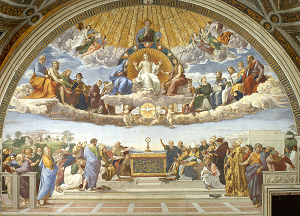
Arquivo para January, 2015
Epiphany Eucharist and philosophy
 The passage of the boy-God in Earth is followed by his manifestation to men, the Epiphany, which could disappear after death and crucifixion of what was pure manifestation of the divine in the midst of the human race, we could say the manifestation of Being par excellence between beings and loved, themes dear to Husserl, Heidegger, and Derrida Deleuze..
The passage of the boy-God in Earth is followed by his manifestation to men, the Epiphany, which could disappear after death and crucifixion of what was pure manifestation of the divine in the midst of the human race, we could say the manifestation of Being par excellence between beings and loved, themes dear to Husserl, Heidegger, and Derrida Deleuze..
But there are between beings a manifestation of Being, that is those who gather in full open attitude and make it to the negation of being, to be with each other, breaking the classical logic, non-being is to be because it is to be with the other, as thought Levinas and Paul Ricoeur.
The mystical portion of the presence of Jesus, for those who believe the God-man, who on the cross is similar to hommo sacer, figure used by Giorgio Agamben and Hanna Arendt and recently also Slavoj Zizek, figure used to tell the common man deprived of his humanity, although this can not be confused with a religious figure, we could say was deprived even of this, here the epiphany becomes Eucharistia if we think of something, not in fact, pure one, even to save some trace of Being .
Eucharistia εὐχαριστία the Greek, the Catholic Christian explanation of transubstantiation of the body of Jesus in the bread and wine at the apex of a Mass, but I like to remember the Raphael above the Vatican, called “The dispute of the sacrament” between Christian and religious figures is there is a dispute between philosophy and theology or between a divine nature and a pure substance with a monstrance on an altar, puts down the religious figures amid worldly philosophers.
If there is a tension between being and the being, Deleuze says “the heavenly and a divine understanding inaccessible to our representative thought, or the infernal short, unfathomable to us, an ocean of dissimilarity”, so are not beings and things but able to think one pure Being transformed into pure thing, or rather pure “noúmeno”, the thing to the classics, misunderstood by Kant which is pure dissimilarity.
Eucharistia is being turned into noúmeno, person transformed into substance, something defined by Christians as “transubstantiation”, unfathomable but not unreachable.

